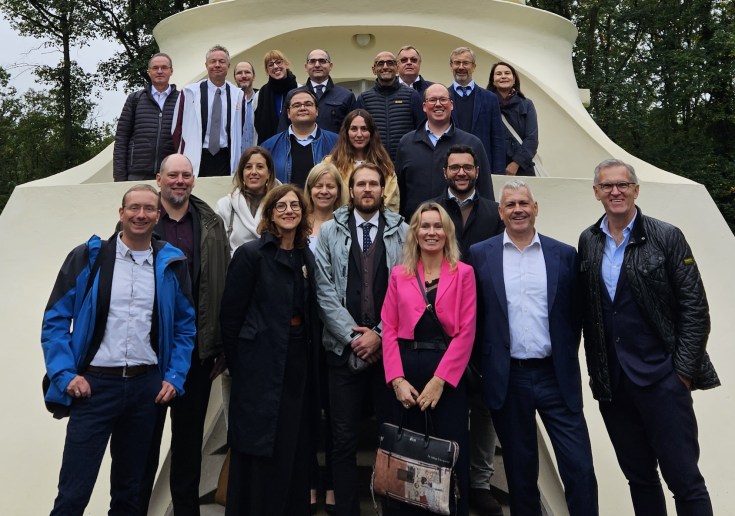ERDF for interregional innovation projects: key learnings

The Policy Learning Platform organised a peer review for the Ministry of Finance and for European Affairs of Brandenburg, in Potsdam, Germany, on 12 and 13 October 2023.
The Ministry was looking for inspiration on how to embed cooperation for interregional innovation projects in its ERDF Programme. Three questions were addressed by the peers during this peer review.
The current state of affairs
Regulation (EU) 2021/1060 of the European Parliament and of the Council of 24 June 2021 requires including in funding programmes solutions for “interregional, cross-border and transnational actions with beneficiaries located in at least one other Member State or outside the Union, where relevant”.
For the funding period 2021-2027 Brandenburg aims to increase the implementation of this Regulation by including this internationalisation process within the priorities stated in the Joint State Policy Priorities for EU Funds. In this context, it is worth noting that Brandenburg set strategic objectives for its cooperation with regions in Western Poland, for instance.
Furthermore, Brandenburg has been engaged in interregional innovation mechanisms such as the Innovation Express.
Who were the Peers from across Europe?
Alongside Thorsten Kohlisch, Laura Varisco, and Marc Pattinson, from the Policy Learning Platform, four excellent peers participated in the peer review:
- Ivano Magazzu, Generalitat Valenciana (former Interact Officer), Spain
- Andreas Larsson, Swedish ESF Council, Sweden
- Antonio Bernardo, Basilicata Region, Italy
- Marta Marin Sanchez, Basque Government, Spain
The peers shared their experiences and provided tailored policy recommendations for ways of tackling Brandenburg’s policy challenges and provided the host with valuable insights, know-how, and practical suggestions for solving the challenges presented above.
Marta Marin Sanchez, a peer during the peer review shared the following.

My main takeaway is that I realised once again that the beauty of cooperating at EU level is when we learn from each other in this way. We are all very different organisations, different cultures, but it is a learning process every second. We should follow-up this mutual learning experience and I am very much willing to host a peer review in my region.
Our recommendations in a nutshell
- Making sure to have the right political support and all relevant partners on board to unleash the full potential of cooperation and increase competitiveness. To do so, gathering data and evidence-based examples of the added-value of interregional cooperation is the first step.
As well as establishing a bottom-up strategic dialogue with stakeholders for a jointly developed approach towards concrete collaboration and cross-organizational team. This approach will lead to the creation of a permanent structure and network.
- Among the stakeholders, identifying key-enabling intermediaries is the starting point of the process of embedding cooperation. Indeed, multiple actors are the right gateway for delivering opportunities and engaging SMEs, these include universities, science parks, Enterprise Europe Network, clusters, trade and export actors…
This approach will help to demonstrate the cost-effectiveness of encouraging SMEs to go abroad (via success stories, pilots, training, diversification of funding instruments…).
Other recommendations will be shared shortly in the follow-up report.

